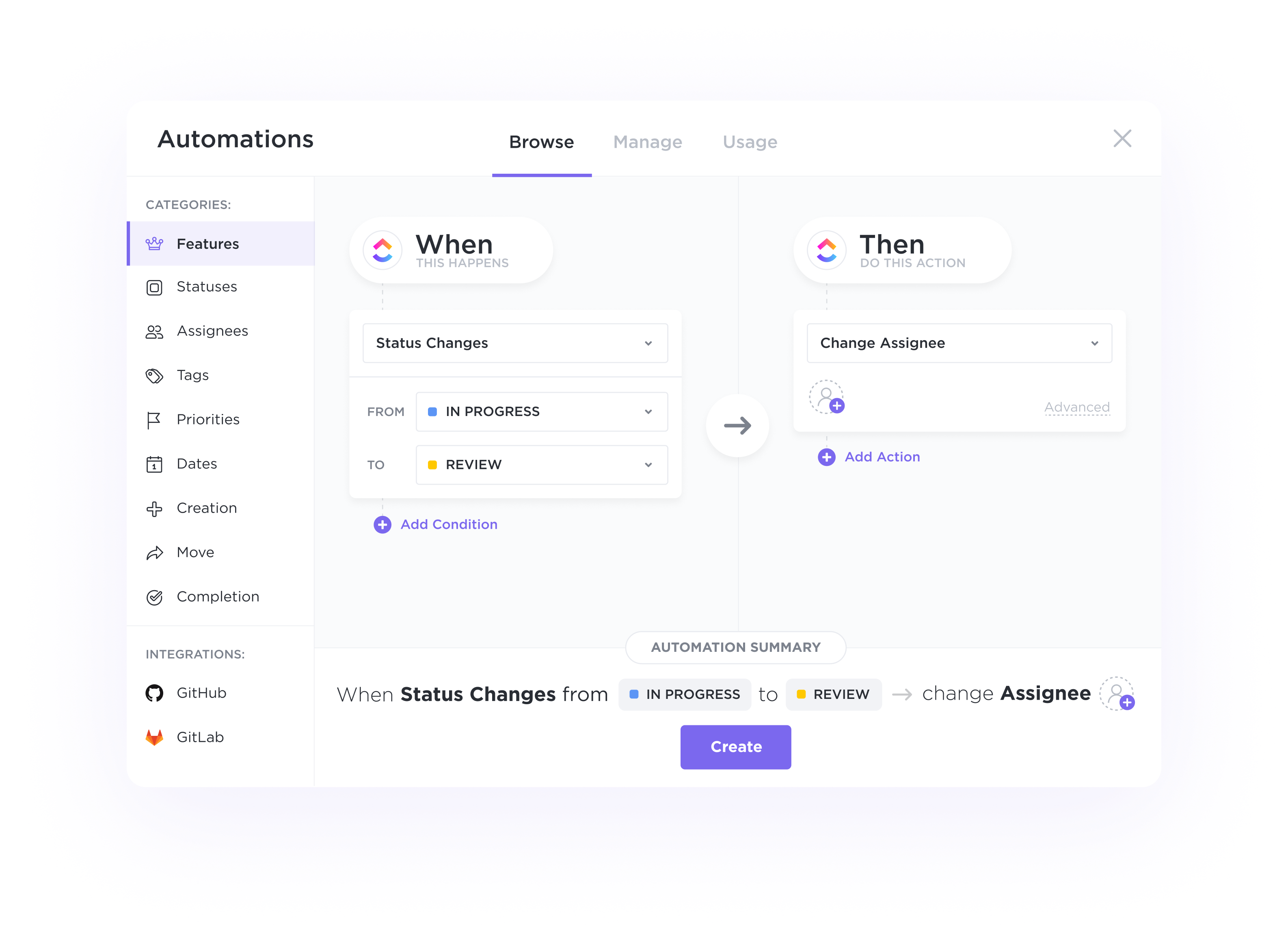Automations
Automate handoffs, status updates, and more.
Automatically assign tasks for each stage of your pipeline, trigger status updates based on activity, and switch priorities to alert your team on where to focus next.

Gantt Charts
Elevate your network security game with ClickUp's customizable CRM system designed specifically for Network Security Analysts. Streamline your workflow, track leads efficiently, and enhance customer relationships effortlessly. Say goodbye to scattered data and hello to a centralized platform that empowers you to stay organized and ahead of the game. Try ClickUp now and experience the difference in managing your network security operations.
Free forever. No credit card.
Automations
Automatically assign tasks for each stage of your pipeline, trigger status updates based on activity, and switch priorities to alert your team on where to focus next.

Relationships
Create your ideal system to store and analyze contacts, customers, and deals. Add links between tasks, documents, and more to easily track all your related work.

A CRM provides a centralized platform to record and track security incidents, including details such as the type of incident, affected systems, severity level, and actions taken. This centralization helps security analysts easily access and update incident information, ensuring a comprehensive view of the security landscape.
CRMs can automate incident response workflows by setting up predefined processes for different types of security incidents. This automation streamlines the response process, assigns tasks to appropriate team members, and ensures timely resolution of security threats, reducing manual effort and response time.
CRMs help in organizing and managing threat intelligence data, such as indicators of compromise (IOCs), threat actors, and security vulnerabilities. By centralizing this information, security analysts can better understand the threat landscape, identify patterns, and proactively defend against potential cyber threats.
Security analysts often need to collaborate across teams to investigate and respond to security incidents. A CRM facilitates better collaboration by providing a shared platform where team members can share insights, updates, and findings in real-time. This collaboration improves response efficiency and effectiveness.
CRMs offer robust reporting and analytics capabilities to track key security metrics, such as incident response times, threat detection rates, and vulnerabilities identified. These insights help security analysts assess their organization's security posture, identify trends, and make informed decisions to strengthen cybersecurity defenses.
Key features of CRM software that can help network security analysts include managing customer interactions, automating tasks, tracking sales activities, analyzing customer data, and facilitating collaboration among team members.
CRM software can be integrated with existing network security tools and systems to enhance data protection and compliance measures, ensuring secure access, data encryption, real-time monitoring, and threat detection capabilities across the network infrastructure.
Yes, CRM software can provide real-time alerts and notifications for network security incidents and threats, helping organizations respond promptly and effectively to potential risks.